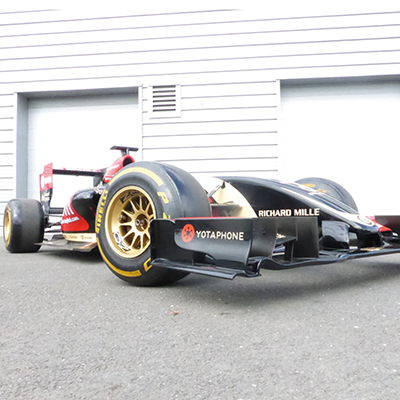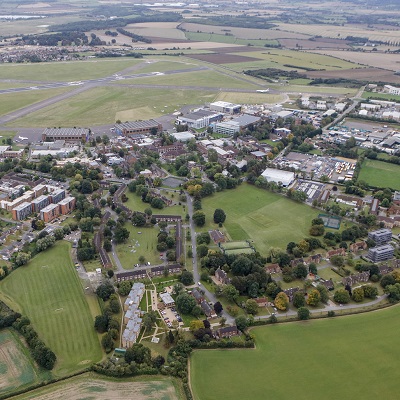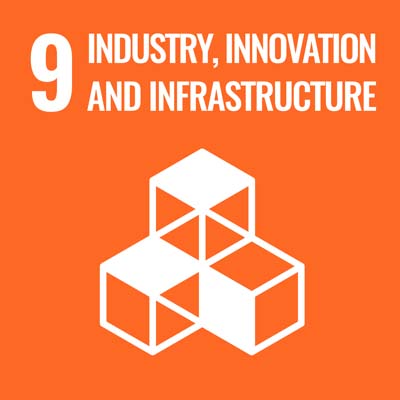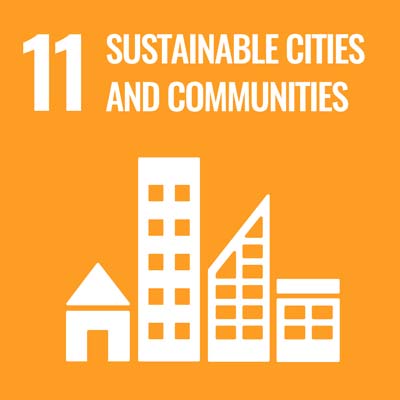The Advanced Motorsport Engineering MSc has a limited number of places, due to its popularity early application is encouraged.
Overview
- Start dateSeptember
- DurationOne year full-time
- DeliveryTaught modules 40%, Group project 20%, Individual project 40%
- QualificationMSc
- Study typeFull-time
- CampusCranfield campus
Who is it for?
Developed in collaboration with leading motorsport companies, the course is suitable for graduates in engineering, mathematics, physics or an applied science, and able to demonstrate motivation and commitment to being actively involved in motorsport.
For those students wishing to apply with a pure science or pure mathematics background or those with limited motorsport experience we strongly recommend our Introduction to Motorsport Engineering short course as a primer for the MSc programme.
Why this course?
Cranfield University has undertaken research, consultancy and testing for the motorsport sector since the 1970s. The University is home to the FIA approved Cranfield Impact Centre and Cranfield Motorsport Simulation which work with F1 and leading motorsport companies.
We have an international reputation for our expertise in aerodynamics, CFD, materials technology, including composites, safety of motorsport vehicle structures, power-train development, vehicle dynamics, simulation, data acquisition and electronics, tyre characterisation and modelling. This track record ensures the course is highly respected by the motorsport industry.
The MSc in Advanced Motorsport Engineering aims to provide you with a deep understanding of the fundamental scientific, engineering and managerial principles involved in motorsport, and their implementation within a high performance technology context.
You will cover design, construction and operation of competition vehicles, and related aspects of materials science, aerodynamics, structural analysis, vehicle systems, and management techniques related to motorsport. You will be taught the skills required for the planning, execution and reporting of motorsport projects and to prepare them for a variety of applications.
Unique to Cranfield University, you will have the opportunity to:
- Take part in practical sessions using Cranfield's facilities and equipment.
- Engage with motorsport practitioners.
- Get involved in motorsport related project work.
Informed by Industry
As of November 2023, the following are members of Cranfield University Motorsport MSc Steering Committee. This is the Industrial Advisory Board (IAB) for the Advanced Motorsport Engineering and Advanced Motorsport Mechatronics MSc courses.
| Professor Adrian Reynard | ARC |
| Paul Crofts | Helix Powertrain - Chief Technologist-Process and Vertical Integration |
| Chris Aylett | The Motorsport Industry Association - Chief Executive |
| Professor Pat Symonds | F1 - Chief Technical Officer |
| Owen Carless | Red Bull Powertrains - Head of Mechanical Simulation |
| Sylvain Filippi | Envision Racing - Managing Director & CTO |
| Ron Hartvelt | One Group Engineering - Managing Director |
| Stefan Strahnz | Mercedes AMG Petronas F1 - Chief Engineer Cost and Commercial Programmes |
| Christopher Tate | Mission Motorsport - Chairman |
| Neil Spalding | Signa Performance, Moto GP Journalist |
| John Proctor | AVL UK - Technical and Operations Director |
| David Lapworth | Prodrive - R&D Director |
| Gérry Hughes | KW Special Projects - CTO |
| Cristiana Pace | E-novation Consulting - Founder |
| Mike Pilbeam | Pilbeam Racing Designs |
| John Ryan | Motorsport UK - Safety & Technical Director |
| Ian Goddard | BWT Alpine F1 - Head of Technical & Innovation Partnerships |
| Isaac Sanchez | Ferrari - F1 Innovation & Special Projects Manager |
| Dennis de Munck | Ferrari - Head of Employer Branding and University Relations |
| Pete James | Lyra Electronics - Founder & Director |
| Stuart Robertson | FIA - Head of Circuit and Rally Safety |
| Peter Digby | BRDC - Chairman |
| John Grant | BRDC |
Course details
The MSc course consists of nine one-week assessed modules, of which eight are assessed, which take place during October to February, a group design project and an individual thesis project.
Students who excel on the Masters' course have their performance recognised through prizes from our partners and associates presented either on the day of the Motorsport Group Design Presentations or at the Motorsport MSc 'Parc Ferme' Graduation event in the June of the following year.
These are awarded for:
- Sir Jackie Stewart OBE Prize - Best overall student performance
- Visiting Professor Adrian Reynard Prize - Best thesis
- British Racing Drivers' Club (BRDC) Prize - Best student ambassador
- Best overall Group Design Project
- MSA (Motor Sports Association) Prize - Best Group design project presentation
- Racecar Engineering Magazine Prize - Best Group design project poster.
Course delivery
Taught modules 40%, Group project 20%, Individual project 40%
Group project
Group design projects (GDPs) are an important element within our Motorsport MSc courses. GDPs run from February to May. The GDP is an applied, multidisciplinary, team-based activity, providing students with the opportunity to apply principles taught during their MSc courses. With support from the Motorsport Steering Committee and wider industry community, Cranfield’s GDPs provide MSc students with experience of working on real challenges which the motorsport sector faces now and in the future.
The GDPs have been described as being very close to real-world working. In addition to the technical challenges, students develop their skills during a phase of group working that culminates in the submission of technical reports, group presentations to academics and then to "industry", team meeting minutes that reflect individual contributions and individual reflective reports. Team working experience, which students develop during the GDP phase, is highly valued by students and prospective employers, alike. A key aspect is the student’s own evaluation of their skills at the onset of the GDP and how these develop. Their fellow team members provide peer assessment which forms part of a discussion with academic staff. The students then focus on two areas based on the feedback which their peers support. Cranfield’s GDPs have proven very successful in developing new conceptual designs and systems which have been implemented in competition vehicles and have even influenced technical and sporting regulations.
The nature of the GDP work is very much applied with the Motorsport MSc students accessing facilities and equipment here at Cranfield together with support from the academic team and technicians.
There is a competitive dimension to the GPDs. On the "industry day" there are:
- The Motorsport UK prize for the best team presentation on the day.
- The Racecar Engineering prize for the best group poster.
Recent winners of the Racecar Engineering prize
- 2019 - Falcon Hybrid
- 2018 - EVRAID
Individual project
Each year we have a number of thesis projects with motorsport companies that are subject to Non-Disclosure Agreements. This reflects the competitive and confidential nature of motorsport. However, a number of thesis projects are in the public domain and reflect the opportunity students have to deepen their technical understanding. Recently completed thesis projects include:
- Simulation of interconnected suspension for LMP applications
- Applied aerodynamics study for rear wing optimisation
- Simulation and design of a split turbocharger for a 2015 F1 engine
- Design, manufacture and testing of a novel F1 suspension arm joint
- Airbox design: analysis and improvement for a racing sidecar outfit.
The individual thesis project runs until early September. Thesis projects allow the students to deepen their understanding through research work related to motorsport.
“The day before going to Goodwood, I was at Cranfield University attending the Thesis Project Exhibition Day which included presentations for the Motorsport MSc programme, in other words, the bright young minds that will hopefully be coming into motorsport in the near future. With students from around the world, it really was inspirational talking to many of them and learning from them what they had been researching and their conclusions. As long as the sanctioning bodies embrace new technologies and not be afraid of them and go down the spec series route, then motor racing’s future looks exceptionally bright.” William Kimberley, Editor, Race Tech Magazine
Modules
Keeping our courses up-to-date and current requires constant innovation and change. The modules we offer reflect the needs of business and industry and the research interests of our staff and, as a result, may change or be withdrawn due to research developments, legislation changes or for a variety of other reasons. Changes may also be designed to improve the student learning experience or to respond to feedback from students, external examiners, accreditation bodies and industrial advisory panels.
To give you a taster, we have listed the compulsory and elective (where applicable) modules which are currently affiliated with this course. All modules are indicative only, and may be subject to change for your year of entry.
Course modules
Compulsory modules
All the modules in the following list need to be taken as part of this course.
Induction and Introduction to Motorsport
| Aim |
|
|---|---|
| Syllabus |
The Advanced Motorsport Engineering MSc and the Advanced Motorsport Mechatronics MSc with reference to its key components: the taught modules, the group design project (GDP) and the individual thesis projects as well as considerations such as ethics, health and safety and the environment. |
| Intended learning outcomes |
On successful completion of this module you will be able to: 1. Describe the elements of the courses in relation to the MSc award. This includes understanding the variety of assessments, the Group Design Project, and the individual research project. |
Motorsport Structural Analysis
| Aim |
|
|---|---|
| Syllabus |
|
| Intended learning outcomes |
On successful completion of this module you should be able to:
|
Motorsport Electronics and Data Acquisition
| Aim |
|
|---|---|
| Syllabus |
|
| Intended learning outcomes |
On successful completion of this module you will be able to: 1. Describe the fundamental role electronic systems and acquired data have on and off vehicle throughout motorsport. 2. Design, evaluate and optimise data systems based on fundamental principles of electrical and digital information transfer. 3. Propose and apply suitable data analysis techniques to tackle particular engineering questions in a motorsport context. 4. Analyse data in the context of a chosen field, maximising the result from a particular test (vehicle dynamics used as an example with direct involvement in configuration and calibration of instrumentation on a vehicle for a track test) 5. Evaluate a basic embedded control system. |
Motorsport Vehicle Dynamics
| Aim |
|
|---|---|
| Syllabus |
• Tyre shear force development, measurement and characterisation • Suspension geometry description and analysis – important properties • Steady turning equilibrium states; suspension/chassis interactions; roll angles, load transfers, jacking • Yaw/sideslip handling dynamics; steady turn responses, understeer and oversteer; stability and controllability (a) small perturbations from straight running (b) small perturbations from cornering trim • Limit behaviour and design aspects; differentials and brake balancing • Simulation tools and model building • Vibration behaviour of car and wheels; springs; dampers; track roughness and the use of electro-hydraulic shaker rigs for setup. |
| Intended learning outcomes |
On successful completion of this module you will be able to: 1. Appraise the performance limits of a competition vehicle and the sources of such limitations. |
Motorsport Aerodynamics
| Aim |
|
|---|---|
| Syllabus |
A review of the fundamental aerodynamic characteristics of streamlined and bluff bodies. The application of aerodynamic design principles to motorsport wings and diffusers. Mechanisms for controlling aerodynamic lift and drag generation. An introduction to aerodynamic issues related to cooling and ventilation flows. An introduction to wheel aerodynamics. An overview of open-wheel, sports car and touring car aerodynamics. Experimental methods for motorsport aerodynamics including the use of a moving ground wind tunnel. Post-processing of experimental and numerical data obtained in aerodynamic investigations. |
| Intended learning outcomes |
On successful completion of this module you should be able to: 1. Demonstrate knowledge and understanding of the essential facts, concepts and principles of incompressible flows including vortices and viscous effects, boundary layers, wing and diffuser aerodynamic characteristics. 2. Demonstrate understanding of how aerodynamics affects the motorsport vehicle design and operation. 3. Demonstrate a critical awareness of the wind tunnel techniques used to analyse motorsport aerodynamic problems and apply these techniques and concepts to develop solution strategies for relevant wind tunnel simulations. 4. Demonstrate competence in analysing and evaluating the low speed aerodynamic characteristics of representative vehicles and components using acquired wind tunnel data, data sheets and fundamental principles. |
Computational Fluid Dynamics for Motorsport
| Aim |
The module on Computational Fluid Dynamics (CFD) for Motorsport is an introductory course on how CFD works. This module exposes the learner to all relevant concepts that are required to conduct a CFD simulation, from meshing, setting up the solver, selecting an appropriate turbulence modelling strategy, to visualising results, and managing simulation errors and uncertainties. High-performance computing will be touched upon as well, which will enable the learner to run simulations for large and realistic geometries. By the end of the module, the learner will be able to perform their own CFD simulation for motorsport applications and evaluate aerodynamic designs. Lift, drag, and moment coefficients extracted from CFD simulations may then be used in vehicle dynamics models to characterise the performance of a given geometry. |
|---|---|
| Syllabus |
|
| Intended learning outcomes |
On successful completion of this module you should be able to: 1. Differentiate between CFD approaches for different flow regimes. 2. Formulate a solution strategy for a given fluid dynamics problem in motorsport. 3. Demonstrate an ability to apply commercial CFD software to a given fluid dynamics problem. 4. Understand where CFD fits into the aerodynamics’ 'toolbox' in terms of the relationships between CFD, wind tunnel and full-scale, on-track testing. |
The Business of Motorsport
| Aim |
|
|---|---|
| Syllabus |
• The business environment in general. |
| Intended learning outcomes |
On successful completion of this module you will be able to: 1. Appraise the specific management challenges facing the motorsport sector. |
Composite Structures for Motorsport
| Aim |
|
|---|---|
| Syllabus |
• Composites application of in Motorsport industry through case studies. • Manufacturing technology and joining techniques, including manufacturing technique training. • Composite structures design, analyses and optimisation techniques. • Design of safety structures. |
| Intended learning outcomes |
On successful completion of this module you should be able to: 1. Apply the principles of composite material selection and performance in the design and manufacturing of structures in motorsport. 2. Evaluate upcoming materials/structural technologies and judge their possible applications. 3. Evaluate and compare the techniques used for the design, processing and assembly and testing of motorsport structural components. 4. Apply and analyse crashworthiness concepts and the influence of Motorsport regulations on the structure design. |
Motorsport Powertrains
| Aim |
|
|---|---|
| Syllabus |
|
| Intended learning outcomes |
On successful completion of this module you should be able to: 1. Explain what counts as excellent engine performance and how to use engine simulation techniques to find such levels of performance2. Test and evaluate the physical processes at work during the preparation of the fuel & air mixture and its eventual combustion and emission with particular reference to high engine speeds. 3. Evaluate the matching of engine, transmission and vehicle chassis for motorsport applications. 4. Appraise the operation of high performance vehicle transmission systems. 5. Examine hybridisation and electrification of motorsport powertrains.
|
Teaching team
Our students regularly engage with motorsport practitioners through group design and individual project work supported by industry. Our extensive network of contacts provides students with the opportunity to undertake exciting projects addressing real-life challenges in motorsport, while gaining important additional skills. In addition, a number of external lecturers from the world of motorsport will deliver sessions during modules as well as contributing to the group design project phase and to the support of individual thesis projects.
Accreditation
The Advanced Motorsport Engineering MSc is accredited by:
- The Institution of Mechanical Engineers (IMechE)
- Institution of Engineering and Technology (IET)
- Royal Aeronautical Society (RAeS)
on behalf of the Engineering Council as meeting the requirements for further learning for registration as a Chartered Engineer (CEng). Please note accreditation applies to the MSc award, PgDip and PgCert (if offered) do not meet in full the further learning requirements for registration as a Chartered Engineer.
Your career
Motorsport is a highly competitive sector. Studying at Cranfield will immerse you in a highly focused motorsport engineering learning experience, providing you with access to motorsport companies and practitioners. Successful students go on to be part of a network of engineers where you will find Cranfield alumni working across a range of roles within the motorsport and high performance engineering sector.
Roles that our alumni have gone into include:
| F1 Performance Simulation Engineer |
| Vehicle Test Engineer, |
| Engineering Team Lead, |
| Race Engineer, |
| Simulation Development Engineer, |
| Senior Performance Simulation Engineer, |
| Senior Project Engineer, |
| F1 Tyre Engineer, |
| Advanced Manufacturing Engineer, |
| Structural Analysis Engineer, |
| Aerodynamicist, |
| Stress Engineer, |
| Powertrain Calibration Engineer, |
| Performance Engineer, |
| Mechanical Design Engineer. |
Organisations that employ our graduates include:
| F1 British Grand Prix, | Boeing, |
| Red Bull Racing Ltd, | Pirelli, |
| Scuderia Toro Rosso, | Alpine, |
| Aston Martin F1 Team, | Williams Racing, |
| BMW Group, | Bosch Engineering GmbH, |
| Bugatti Rimac, | Haas F1 Team, |
| Lotus F1 Team, | Bentley Motors Ltd, |
| Dassault Aviation, | McLaren Racing. |
| Tesla, | Mercedes-AMG Petronas Formula One Team, |
Cranfield’s Career Service is dedicated to helping you meet your career aspirations. You will have access to career coaching and advice, CV development, interview practice, access to hundreds of available jobs via our Symplicity platform and opportunities to meet recruiting employers at our careers fairs. Our strong reputation and links with potential employers provide you with outstanding opportunities to secure interesting jobs and develop successful careers. Support continues after graduation and as a Cranfield alumnus, you have free life-long access to a range of career resources to help you continue your education and enhance your career.
How to apply
Click on the ‘Apply now’ button below to start your online application.
See our Application guide for information on our application process and entry requirements.
I chose to study at Cranfield University after hearing about their connections within Formula One and a recommendation from a previous colleague. I knew the Advanced Motorsport Engineering MSc was the right option for me as I liked the course structure and modules that were on offer.
As someone who would like to pursue a career in high performance car aerodynamics and ultimately make the step to lead car development, studying this MSc at Cranfield was an easy decision for me. It has been an enriching experience, learning from my outstanding colleagues and pushing my self-learning ability. In particular, I have enjoyed been constantly challenged to work outside of my comfort zone. Thanks to this, I have already secured a job as a Aerodynamic and Simulations Engineer! If you are ready to work hard and enjoy the experience, then this is where you are meant to be.
I feel that the MSc in Advanced Motorsport Engineering at Cranfield was an incredible experience I would not have been able to have anywhere else. I completed my thesis project with Mercedes AMG F1 which has further progressed into a full time job as a Test and Development Engineer.





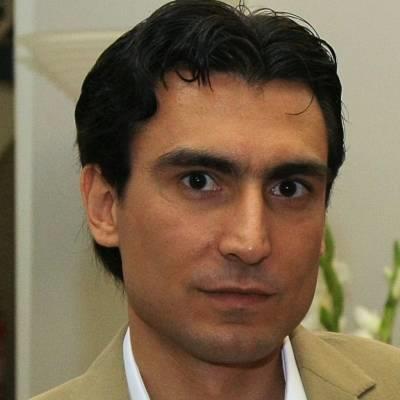


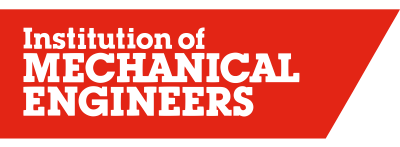

.ashx?h=400&w=400&la=en&hash=3B84C54161A4E2915C4796704E46FE41F7219AC4)



